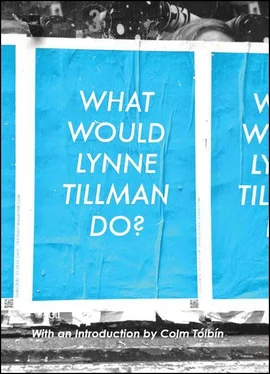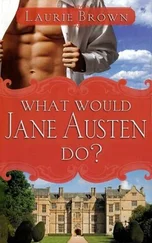The Stones played eight songs, the songs were three or four minutes each. They were onstage less than half an hour. They finished their set and walked off the way they’d walked on. They just walked off. No one clapped or shouted, everyone was fed up, pissed off, let down. We’d become the anti-audience, and rose, grabbed our jackets, left our seats and filed out. There was no fighting, no talking. We’d all been rebuffed, like the hefty, dark-haired girl. The audience spilled onto 14th Street, a morose confederacy of rebels. It was early evening.
I suppose my friend and I went out for something to eat. Or maybe I went home and ate sliced beets and broiled chicken wings. Life continued, but something had changed: the Rolling Stones had played New York.
By now, the Stones have changed a lot. Brian drowned, murdered, it’s alleged, by his assistant; Mick Taylor quit, so Ron Wood plays lead guitar; Darryl Jones plays bass, since Bill Wyman retired; and Mick’s, Keith’s and Charlie’s faces are cross-hatched and filigreed with event and experience. I’ve changed, too. For one thing, I have stopped eating wings exclusively, though I eat chicken. I still love beets, but now fresh and roasted, and order them whenever they’re on a menu. I still like to wear a uniform of sorts, but now I buy six or seven pairs of the same, usually black pants, about that number of the same all-cotton, long-sleeved T-shirts, and many of the same linen, rayon or silk blouses. I buy everything in different colors. Life isn’t as bleak, with some variety.
“Bigness is theoretical domain at this fin de siècle: in a landscape of disarray, disassembly, dissociation, the attraction of Bigness is its potential, reconstruct the Whole, resurrect the Real, reinvent the collective, reclaim maximum possibility.”—Rem Koolhaas and Bruce Mau, S,M,L,XL
Contemporary writers worry about the place of writing the cultural space for books. The novel is an endangered species, as fiction faces down confessions and “real-life” stories. “True” today means “actually happened,” and invention and imagination are dirty words, viewed as suspiciously as communism in the 1950s. More fiction and nonfiction books are published, but most vanish without a trace, so not only writers, but also publishers and editors are depressed. The phrase “return of 1996,” the industry’s LA earthquake (when books were returned to publishers in record numbers), is repeated like a mantra. The picture is not getting better: “The latest survey from the Association of American Publishers shows that net sales of hardcover books are down by 12 per cent per year to date and books are being returned to publishers at an average rate of 45 per cent,” reports The New York Times . The context in which books are written and published is unstable, unpredictable, and who knows how to account for taste, anyway.
In the 1950s, when Don DeLillo’s new novel Underworld begins, there was a notion — the great American novel. It has disappeared and in its place, probably under Reagan, great became big. Publishers publish big or little books: authors are big or little, midlist or midcareer. Big, mid, little don’t measure page-length, but how the book will be positioned. Marketing determines “big” or “little” more than the way the book is written, its ideas, length, cost. What it’s been paid, the advance, is a variable, but a book with a small advance may become “big,” depending upon how it’s seen in-house, whether editors and salespeople think it can “break out.” If a little book sells, it can become big, the surprise publisher and authors make money from. Martin Amis is reported to have called our big books “Big Macs.” In fast-food America, everyone agonizes about fat, but wants to be a big, fat deal. Undoubtedly, we’re a nation of size queens.
Don DeLillo understands bigness, economics and capitalism. The underworld of Underworld , its base, is economic; its epilogue, titled Das Kapital , underscores that. Structurally, or superstructurally, DeLillo’s novel makes capital. Underworld opens with the 1951 World Series game where the series-winning home run baseball Bobby Thomson hit starts as a fan’s treasure, fought for, won, then stolen. It flies through Underworld’s pages as an underground economic and cultural signifier, its value unifying characters’ desires.
The baseball circulates. Underworld is, in part, an examination of circulation whether marking a meeting of powerful men at that game — J. Edger Hoover, Jackie Gleason, Frank Sinatra — or the fates of lovers, Nick Shay and Klara Sax, waste analyst and artist, respectively. After an illicit sexual moment, they go their separate ways, taking other into the world as memory.
Memory is another underworld and, in Underworld , it functions as a kind of currency. When intact, memory is as hard as Thompson’s home-run ball, with its strange history that only fans and collectors care about. Along with the baseball, the atomic bomb, atomic energy, and waste blow treacherously. Taste as human excess and folly must be managed, like memory, and hangs in characters’ minds and in the air. If there’s an enemy in Underworld , it’s forgetfulness, the denial of history.
DeLillo’s ambition in Underworld is to join the history of post-war America as a series of events to certain characters, who are shaped more by circumstance than psychology. Hoover’s power and paranoia, the Zapruder film, the firebombing of black churches, the Cuban missile crisis, Lenny Bruce, AIDS, cyberspace — events and things collect and make history. Terrifying weapons, mute objects and traumatic memories proliferate. Underworld’s a proliferation, or a collection, of 40 years of great issues and small ones. DeLillo seems to have wanted to put everything he could into it, as if a book could be a time capsule, which demonstrates DeLillo’s ongoing concern with what we leave to the future, with history. While history may be a collective memory that must be kept alive, fiction plays its role in keeping records for posterity. Like many writers, DeLillo may be concerned, too, with what his work will mean for posterity.
These concerns are probably being fanned by fin-de-siècle anxiety. DeLillo’s previous novel, Mao II , focused on the place of the novelist, with a desire, perhaps, to “reclaim maximum possibility” for fiction. Appearing after the fatwa on Salman Rushdie, Mao II and its protagonist Bill Gray may have spoken for many writers: “In the West we become famous effigies as our books lose the power to shape and influence. I used to think it was possible for a novelist to alter the inner life of the culture. Because we’re giving way to terror, to news of terror. news of disaster is the only narrative people need.” His interlocutor argues: “Are you crazy? Writers have long-range influence.”
Do writers have long-range influence? Long-range like missiles? Reading Underworld , one wonders if the author of Mao II decided that for a novel to make an impact now, it must be big in all senses, cover a wide swath of history over many pages, “to reconstruct the Whole.” Though the Whole has never existed and the Real is not available, these illusions nourish fiction. Fiction responds to a multitude of losses, fantasies and wishes. Underworld’s Lenny Bruce’s monologues, reconstructed from Bruce’s LPs and DeLillo’s memory, and its marking of actual events appear to address what Mao II ’s Gray thinks novels must do — compete with, or at least challenge, the big, nightly news.
Whether it’s a conscious or unconscious gesture, making things big also responds to being scaled back and down, to holes that need filling or to significance that needs restoring, from an America that never was — innocent — to fiction’s shaky, minimized place. The circulation of books may be thwarted by capitalism looking for fast profits, but the meanings of books accrue, slowly, over time. Especially fiction. Fiction imagines lives and ideas and doesn’t immediately announce its value.
Читать дальше












